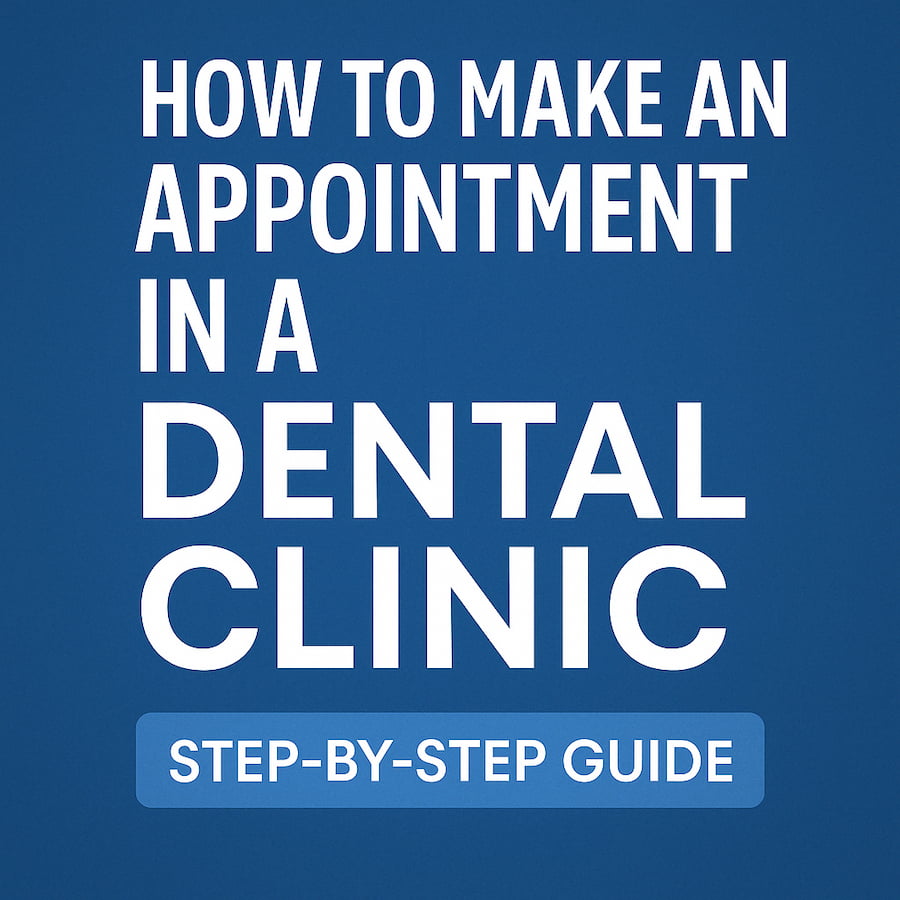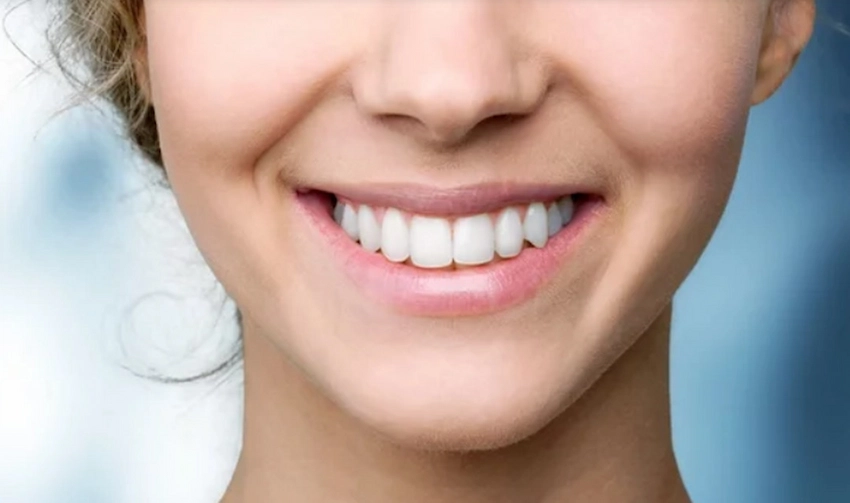Tooth Powder vs Toothpaste: Which one is better?
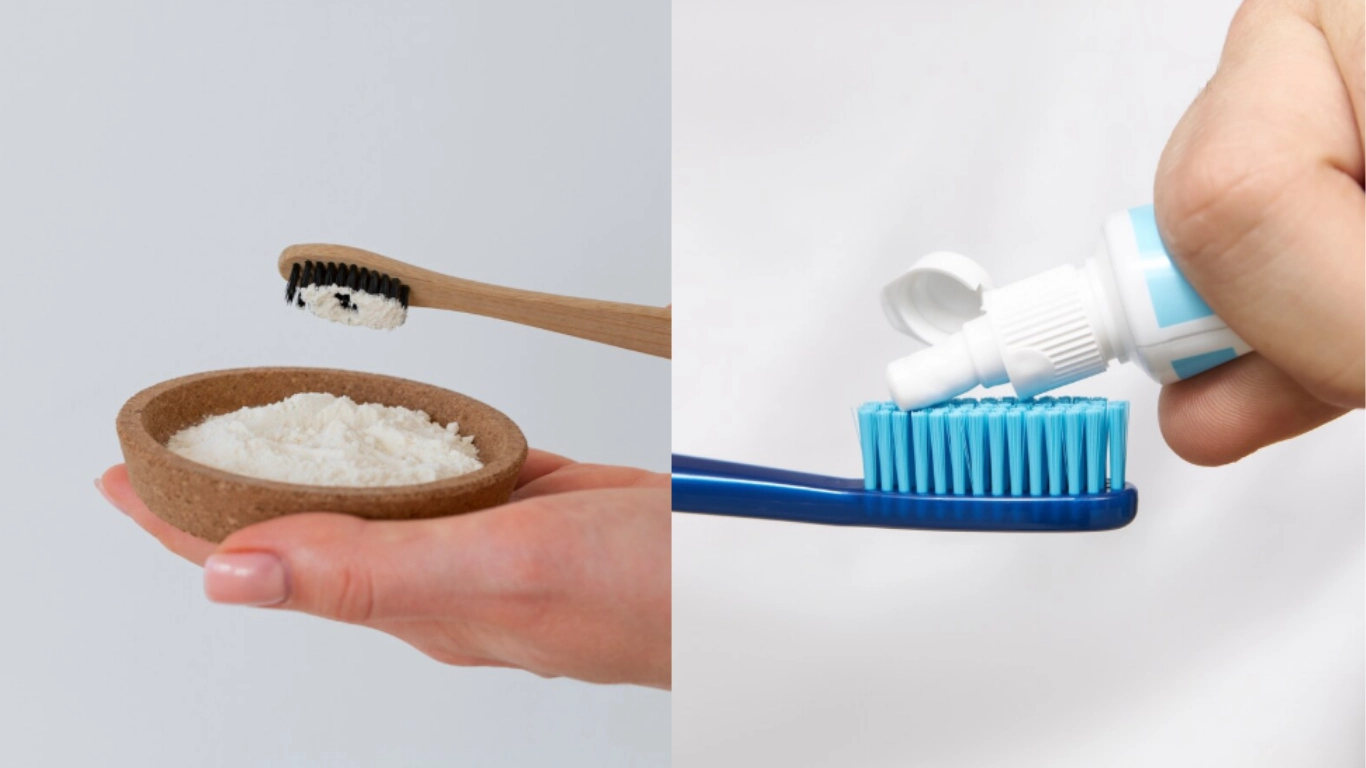
Well, we all know that your smile holds great potential in telling people important things about you. It shows how comfortable you are with yourself. The invisible threads in the coats of our teeth, gums, and the largest living organ are the threads that are never known or mentioned. There is no second chance. It filters through the mind of your being, finding the courage to go for that leap of faith, letting the world see you, and it can only happen with a Hollywood Smile.
The post of Dental Care Coordinator at Lema Dental Clinic is a highly rewarding way of being part of the community and making the world a better place. Small changes in our daily oral care routines have been proven to make a big difference in our overall health and wellness.
No matter your choice between tooth powder or toothpaste, you can truly benefit from switching to those. Tooth powders and traditional toothpaste both have their ways of making the tooth smooth, clean, and shiny. Nonetheless, they leave a lingering question in your brain of which one is indeed better for you.
By the end of this post, we will try to figure out which product holds the leg up on the other: powders or the better-to-have pastes. Namely, you will see what the most hidden potentials of natural tooth powders are and why toothpaste is always the best (s) seller. Let the journey to your oral health status begin already!
What Is Tooth Powder and How Is It Different from Toothpaste?
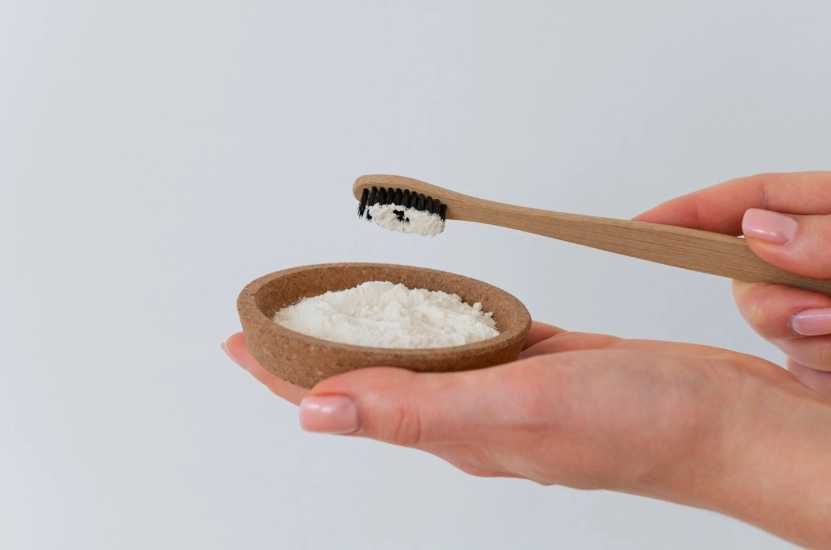
First of all, let me explain something about this new term to you.
It may sound a bit like science fiction, yet people have used tooth powder, a dry, sometimes flavored substance, to clean teeth for ages. Tooth powder has been used as the main tool for oral hygiene for thousands of years. Our ancestors had healthy teeth before toothpaste, and virtually no dental-related diseases appeared by using tooth powder. Besides, remember that this method has a good environmental aspect too, as it does not contain any synthetic substances.
Toothpaste, in contrast, is a product with some solid form that we have become accustomed to over time due to its ease of use. The product is always form-fitting and flavored in order to support the reputation of being very welcoming to users.
What’s so different? Tooth powder is dry, and typically it is rather natural or herbal. Meanwhile, toothpaste is a gel or cream that is full of added chemicals and stabilizers.
Benefits of Using Tooth Powder for Oral Health
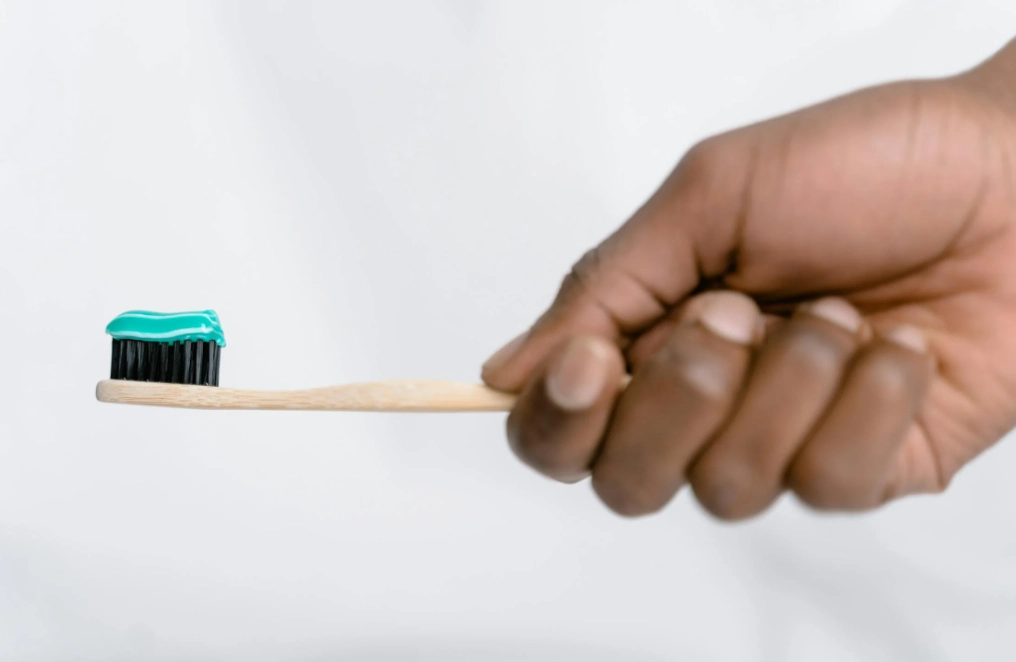
Why would you even think about using tooth powder? Allow me to show you why going with the powder is the right decision through a number of reasonable advantages:
1. No Artificial Junk
Most of the tooth powders made of natural ingredients don’t contain artificial flavors, preservatives, and fluoride. Those who are promoting the use of organic products, dietary vegetarians, and organic food enthusiasts are the target audience.
2. Whitening Power
Natural teeth whitening methods like charcoal-containing tooth powder are highly recognized for their effectiveness. When used, they can eradicate the surface stains and even add luster to your smile.
3. Gentle on Enamel
Most powders include mild abrasives like baking soda or clay, which help clean your teeth without causing any damage to your enamel.
4. Travel Friendly
No spills, no plane bomb! Just put the jar in the bag, and you are ready to go.
5. Long Shelf Life
Powder, unlike toothpaste, doesn’t dry up or get expired so quickly. Besides, it is most of the time made from a glass container or a refillable tin, which is environmentally friendly.
It can be a safe way for you to maintain a whiter smile if you have got Dental Veneers or a Hollywood Smile, and the combination of the two might have fewer side effects than using harsh chemical products.
Common Ingredients Found in Natural Tooth Powder
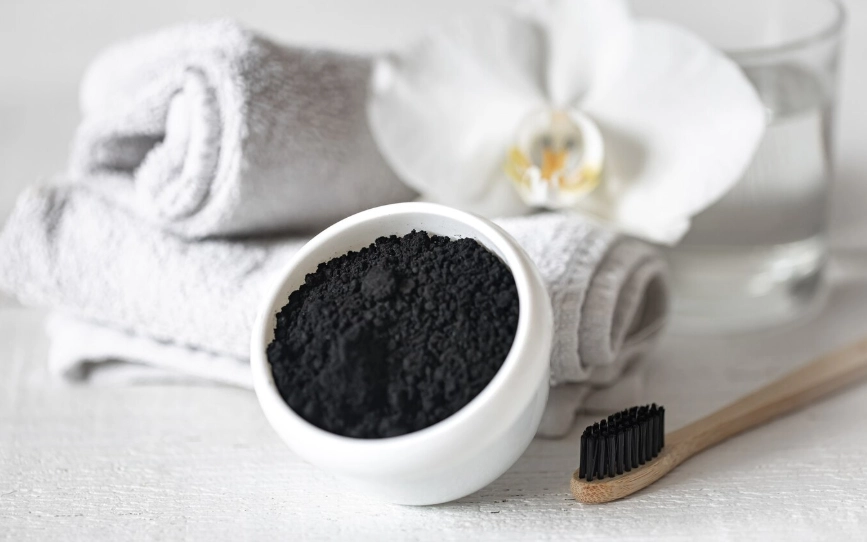
While all tooth powders are halal, some are more popular than others, and here are what makes some of them the most respected:
- Baking Soda – A very popular ingredient used to handle acids and eliminate stains.
- Calcium Carbonate – Suitable for tooth polishing, and the majority of tooth remineralizers contain this compound.
- Bentonite Clay – One of nature’s cleaning agents binds to hazardous material and bacteria.
- Activated Charcoal – Effective for tooth whitening and the removal of dirt.
- Clove & Cinnamon – Traditional antiseptics that help in fighting bacteria.
- Neem & Miswak – Ancient herbs used in herbal tooth powders for their antibacterial properties.
- Xylitol – A natural sweetener that works to lower the amount of harmful bacteria.
If you’re up for a DIY procedure, the internet offers a plethora of homemade tooth powder recipes. Just keep in mind that some of the combinations can be very abrasive!
Is Tooth Powder Safe for Daily Use and Sensitive Teeth?
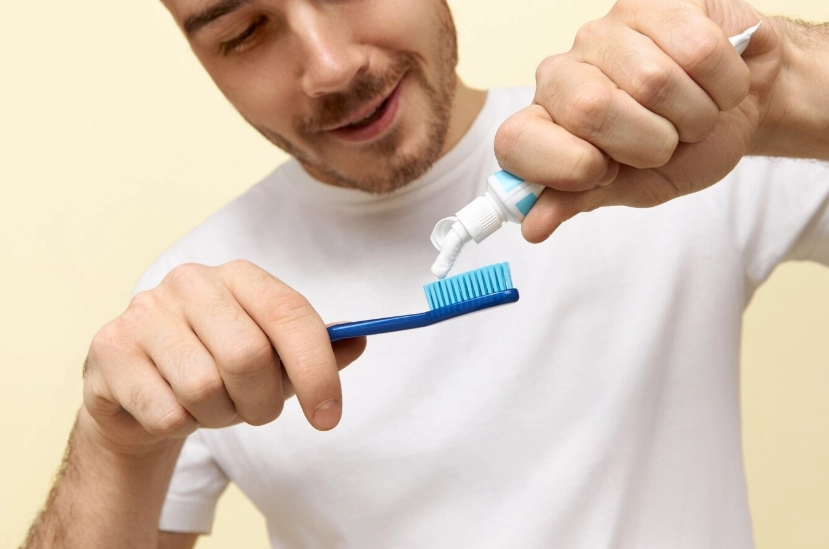
This is a very important question.
Tooth powder can be safe for use every day under the condition that it is made of mild, non-abrasive ingredients. Go for options that are safe for enamel or are described as “daily gentle use”. Stay away from products that are grainy or feel like sand.
Are you dealing with sensitive teeth? Then, you’d better use tooth powder that is free of fluoride and crafted from soothing agents like calcium and clay. Some people with sensitivity find out soap powders less annoying than toothpaste, notably while they are away from artificial flavors or foaming agents.
But do bear in mind: if you are confronting severe pain or hyper-sensitivity, don’t speculate—consult an expert and get proper treatment. Lema Dental Clinic is the right place to be for professional dental care and treatments, such as Root Canal Treatment, if your situation is more serious.
How to Use Tooth Powder Properly: A Step-by-Step Guide
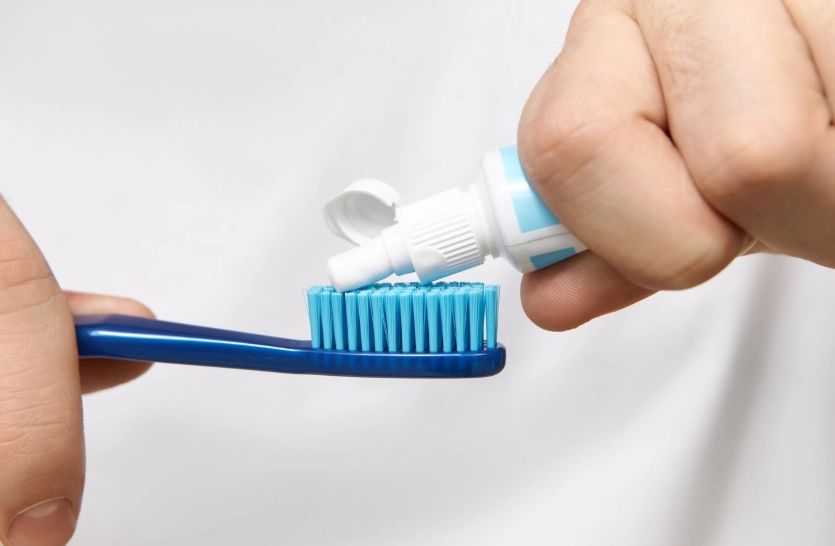
There is no need for you to worry – using tooth powder is simple and merely different from using regular toothpaste. Here is a detailed explanation of how to use it the right way:
✅ Step 1: Wet Your Toothbrush
First of all, you should wet your brush with a little water. Dry your brush as much as possible, but a wet toothbrush works well too; dry is better if you have the option.
✅ Step 2: Tap Off the Excess
If the product is used more than necessary, it will produce a mess. A very thin layer of the pod will suffice.
✅ Step 3: Brush Gently
Use soft movements in circles, as if you were applying toothpaste. But don’t be too rough!
✅ Step 4: Rinse Well
Clean your mouth enough so that no powder residue remains.
✅ Step 5: Clean Your Brush
After each use, wash and clean your toothbrush well to prevent the unwanted buildup of powders.
If you want, a little water or coconut oil combined with the powder will create a paste which will retain the original creamy texture!
So… Which One Wins?
Let’s list the pros and cons.
To put this in a nutshell, if you prefer the more environmentally friendly, no-sock-of-toothpaste and are looking for a good alternative, the natural tooth powder is the best choice. As always, the case is quite the opposite if you are for quickness, fluoride force, and the classic mint-freshness – in that case, the toothpaste is the one to choose.
Tooth Powder for Kids: Yay or Nay?
Children can most certainly use tooth powder, provided they are extra careful, of course.
Always make sure you go for a kids’ tooth powder that is ultra-mild, has no harsh abrasives, and is good for swallowing (naturally, they will swallow some). Also, the taste of strawberry or bubblegum can be the right choice for making it more pleasant for them.
However, many children’s dentists still recommend toothpaste in order to avoid cavities in kids, especially those with fluoride. In Lema Dental Clinic, we always advise parents to consult their children’s dentists before getting anything new.
FAQ: Tooth Powder vs Toothpaste
Tooth powder cleans your teeth by gently scrubbing away plaque and stains using natural abrasives. It also helps freshen breath and may support enamel health depending on the ingredients.
Some dentists support the use of natural tooth powders if they are safe, gentle, and approved for oral use. However, many still prefer fluoride toothpaste for its cavity-fighting benefits.
Tooth powder can be messy and may contain abrasive ingredients that harm enamel if not used correctly. It’s also harder to find in stores compared to regular toothpaste.
Yes! In fact, it’s making a big comeback in natural and eco-conscious oral care circles.
It depends on your needs—powder is great for natural routines and whitening, while toothpaste offers fluoride protection and convenience.
Some tooth powders are designed for sensitive teeth and contain soothing, non-abrasive ingredients. Always check labels and test gently before regular use.
